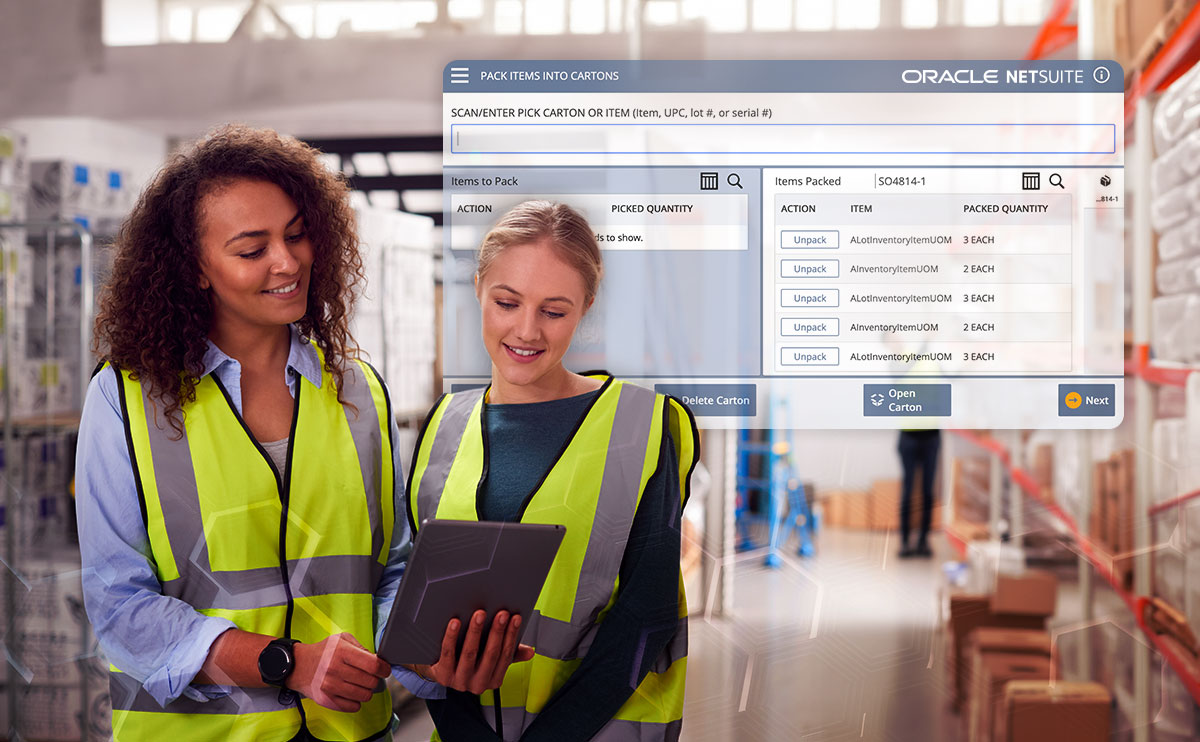Choosing which software systems your company should invest in can be challenging. For many businesses knowing when to move to an ERP system can mean the difference between growing their businesses or getting throttled by software that no longer supports your team and your company.
For many businesses, moving to a Cloud ERP system is an excellent choice, as investing in modern technology gives the benefit of automation, live information and data as well as a single simplified system to manage all departments. There are only a handful of true cloud ERP’s on the market in 2019. By ‘true cloud’ we are referring to the technology that the software system is built on. Older ERP’s such as Epicor, Pronto and Microsoft Navision were designed to be installed as a single instance to a server located in your premises. To make these into “cloud” ERP’s they have simply connected them to a hosting server, which is good because you can access the software through a browser, but it is not a true multi-tenanted cloud solution, and users of these systems can expect to have the same issues that are created by on-premises technology. These main problems that are caused are:
- Expensive and lengthy implementations.
- Need for customisations that break when trying to upgrade.
- Expensive report writing and customisation.
- Poor performance as these systems are not designed to be delivered over a browser.
- Dated database structures and functionality.
For a small business wanting to make the move to ERP, they should be considering the real impacts of this as they grow. What starts as small problems today can often turn into bigger problems in the future.
What is ERP?
ERP stands for “Enterprise Resource Planning” software, and traditionally this was used by manufacturing companies to plan their resources, manufacturing schedule and demand planning. However, the term ERP has now become more widely accepted to categorise any software that provides a business with a wide range of functionality across many different departments and operations.
Software products like MYOB, Xero and QuickBooks are accounting systems, and have not been designed to allow for any robust functionality around managing sales and CRM, inventory, warehousing, work orders or WIP and routing. Traditionally, when small businesses needed more functionality in these areas, they would look to invest in a “best of breed” solution, such as Salesforce for CRM, Unleashed or Fishbowl for inventory management or MRP’s like M1 for managing the manufacturing process. To attempt to simplify data entry and data consolidation they would either invest in ‘integrating’ their different software packages or rely on Microsoft Excel or Google Sheets to consolidate data and attempt to get reporting and insights.
Unfortunately for many businesses, they realised that this IT software strategy is expensive, complicated and fraught with problems. Integrations are great if they work, but as many business owners will tell you, integrations are very prone to ‘breaking’ when one or more of the software’s being used is updated. And so, starts a never-ending cycle of system updates, break fixes, and reimplementation.
Why is ERP different?
A true cloud ERP, like NetSuite, gives businesses a single platform to manage their entire business. Sales and CRM, Accounting and Finance, Inventory and Warehouse Management, Manufacturing and MRP, Project Management, Workflows, Automation, Dashboards and Reporting. Everything a small business currently needs or will end up needing as they grow.
The good news is, that recently NetSuite has introduced a version of their ERP software called SuiteSuccess Starter Edition, which is designed for small businesses with less than ten users, who are wanting to upgrade from MYOB or Xero and move to a single business management platform.
ERP Software Myths
If you ask anyone who has used or implemented ERP software, you will find that there is a wide range of opinions. Over the years, many misconceptions and myths have come from people’s experiences with ERP software. What is important to understand is that not all ERP is equal. There are some excellent ERP systems in the market and some not so great ones. As a business owner, it is important that you evaluate several different options to ensure that you are choosing an ERP software that suits your businesses requirements.

1. The Cost of ERP Determines the Quality
Most people would be familiar with the major ERP vendors being SAP Software, Microsoft Software and Oracle ERP. These three major players were early entrants to the market in the 1990s and dominated the ERP industry for many years. These systems are highly complex, can be very expensive and difficult to maintain and often provide the same functionality that modern ERP’s offer for a much lower investment.
Many of the world’s largest organisations still run on these systems, largely due to the expense and difficulty that moving to a new system would cause. Many companies now realise that legacy on-premise technology is preventing them from growing and increasing the cost and complexity of managing their IT systems. We are now seeing these companies migrate to modern ERP, as the benefits that it offers through simplifying IT strategy and divesting responsibility for maintaining servers and networks is invaluable and set to save them millions of dollars per year.
As an owner of a small or medium-sized business, you can decide to invest in modern technology and not risk getting stuck on dated on-premises ERP platforms.

2. You Need an ERP Consultant to Help with Your Evaluation
Whilst some businesses benefit from getting help from ERP consultants, most companies should be able to manage the process of evaluating ERP in-house with their department experts. An ERP consultant can help you define your requirements, structure this is a way that ensures you have a thorough RFP for ERP vendors to respond to, and enables you to evaluate ERP product demonstrations to this checklist of requirements. In some cases, they may also be able to assist with vendor negotiations on pricing and advise on best implementation working partners. However, this can all be achieved internally with preparation, planning and organisation.
In most cases, the ERP vendors or ERP development partners will be able to help you define your requirements based on their experience in delivering ERP solutions to your industry.

3. ERP Selection Process Should be Run by IT Managers
The truth here is that ERP has minimal impact on what a traditional IT manager does. With True Cloud ERP, responsibility for maintaining the servers and uptime of the system is the responsibility of the vendor and is included in the annual license fees as a service. Your selection of an ERP system should be about your business’s operations and team’s requirements to help them do their jobs more efficiently.
The ERP selection process is an opportunity to take pause and look into how your business is running and how it should be running. When evaluating ERP, you should create a small steering committee of your most knowledgeable and experienced team members who will be able to clearly articulate what their department needs in terms of functionality and explain how things are managed currently, what problems are being caused and where there is opportunity to save time, money and resources.

4. More Functionality Equals Better ERP
This could not be further from the truth. Companies looking to evaluate an ERP system should focus on the functionality they need, not the functionality the system offers, as more often than not, products that an over-engineered tend to be clunky, give poor user experiences and clutter the system with fields and forms that you are never going to use. The reason that this happens in legacy on-premise software is that when customers need more functionality or custom fields, the vendors often had to build this into the source code of the ERP. That means, that when a few companies using the system needed extra fields, then every user of the system had those fields rolled out to them in an update whether they needed it or not.
Modern ERP’s don’t do this, because they have a set of inbuilt tools that allow users to quickly add new fields and forms to the database, without ever impacting the source code. NetSuite does this particularly well and is by far the leader in the ERP market for providing tools that let users learn ERP, take control of their system and continually improve to meet their changing needs.
Benefits of ERP
Now that we have clarified some common misconceptions about ERP systems and explained a little more about why Cloud ERP is different, we can move on to discuss the benefits and advantages that ERP offers users.
ERP systems are one of the most important assets for any business as they provide the foundation for managing your businesses data and operations and give your team the tools, they need to do their jobs more efficiently and effectively.
A good ERP system will do five major things for you:

1. Centralised Management
Provide functionality across all departments, so you only have to manage one system.

2. Real-Time Data
Give you access to live information and data as it happens.

3. Business Analytics
Give you insights into your business’s performance through dashboards and reports.

4. Automation
Automate tasks and processes so your team can focus on generating revenue rather than data entry.

5. Alerts
Alert you when something goes wrong, rather than waiting to discover there was a problem in the past.

Fixed Monthly Cost for ERP
Most ERP systems now have a SaaS (Software as a service) pricing model, which means that you can plan and budget for the cost of your ERP with certainty. SaaS pricing also includes support and maintenance of the application, so you can be sure that as you grow, the only additional costs you need to worry about is adding more users when required.
Whilst ERP is a serious investment for a small or medium sized business, the benefits and ROI are definable. NetSuite for example, depending on the edition you subscribe to can cost as little as $1200 per month for a small to medium-sized business with under five users. The amount of resource time that a system like this saves is often the equivalent of 1-2 full-time administration resources, so when comparing the cost of additional salaries to the cost of a suitable ERP solution, it makes a lot of sense.
It is also important to note, that Cloud Enterprise Resource Planning (ERP) is a single investment, rather than investing in a number of different ‘best of breed’ software packages and integrating them. When you choose a good ERP, the cost is fixed, there is no need for complex integrations, and you have the functionality to cover every department of your business. For anyone who is looking at investing in an ERP solution, it is a good exercise to detail how much you are spending currently on your IT strategy. Make sure you include:

1. Cost of each software package that will be replaced.

2. Cost of hosting, networking or physical infrastructure like on premises servers.

3. Cost of support.

4. Cost of upgrades.

5. Cost of IT staff.

6. Future upgrades and cost to reimplement.
A product like NetSuite provides one platform to manage everything. Sales and CRM, Accounting and Finance, Inventory and Warehouse Management, Work Orders and Assemblies, Project Management and Job Costing, Field Service Management, Dashboards, Workflows, Automation and more.

Total Visibility in Real Time on any Device
True cloud ERP is a website with a powerful database. As long as a user has access to the internet and a web browser, then they have access to the system. There is no need to be in the office, connected to a network or using remote desktop to see and transact in the system. It’s a simple way to access all information, data and dashboards and minimises time and effort associated making sure your IT infrastructure supports your business.
Also, modern ERP systems can be accessed on many types of devices including laptops, tablets and even smartphones, which means that users have more flexibility when it comes to using the system and is not tied to a desk. With remote workforces becoming increasingly popular this means that when you invest in ERP, you are allowing yourself to support flexible work arrangements and meet the expectation of true mobility that is now becoming a standard for the millennial workforce.

Improved Business Intelligence, Reporting and Planning
When you invest in a single system to manage your business, your ability to report, get business intelligence in real time and plan for the future is massively increased. You are also able to get better insights into business drivers as information from different departments can be linked, related and reported.
When you have multiple systems that each hold their silo of information, it is difficult if not impossible to get true 360-degree visibility of your business. Many businesses currently rely on excel to consolidate data and then spend hours if not days formatting and reformatting this information to try to understand what is going on in their business. This detachment becomes a massive drain on resources and wastes time and effort, when simply having the information stored on one system will completely negate the need for this.

Logistics and Business Productivity Improvement
ERP systems improve business productivity in a number of ways that are not necessarily easy to quantify. While all the productivity and quality improvements help contribute to the ROI of the ERP investment, some companies overlook these productivity gains:
1. ERP Supports Better Customer Service
In 2019, the customer is King. Like no time before, customers have access to a massive amount of information, including product and service reviews online. If you are not giving your customers excellent service, they will easily be able to find a better provider, or worse, actively tell people about their poor experience.
Good ERP systems allow you to take control of your customer service strategy and implement ways to continually improve your product and service offering, as well as manager after sales support. Also, because all customer sales and CRM information, along with accounting and financial management information is linked, then getting reports on customer performance becomes easy.
Systems like NetSuite are also able to alert you if a customers behaviour changes or if a VIP customer lodges a support case or makes a complaint which means that sales and customer service team members are able to instantly see when there is a problem and take the opportunity to rectify this as quickly as possible.
2. ERP Data Security and Quality
One of the most common questions we are asked is whether cloud ERP is secure in terms of data and privacy. The truth here is that Cloud ERP vendors spend hundreds of millions of dollars protecting their servers and customers data and that the security of these types of systems is far greater than what a small to medium-sized business would be able to implement trying to protect their in-house services.
Other benefits of this are that the vendor also takes responsibility for data redundancy and backups which again minimises a small business’s need to manage this type of thing internally.
3. Improved Collaboration and Workflows
Another major benefit of cloud ERP is that your team get the ability to collaborate on a single system, which improves the transparency of information and streamlines communications. A single system to manage your entire business means that there is no starting and stopping, uploading and downloading or duplicating data entry.
Good ERP like NetSuite also provides workflow engines to automate processes, manage approvals and alert users as things are happening in real time.
Leading practices when it comes to good businesses processes suggest that if a task can be automated, then it should be automated because it allows your team to spend time servicing your customers and generating revenue rather than doing repetitive administrative tasks.
A lot of time and money can be saved by thinking about things in your day-to-day work life that could be managed by an ERP system. With modern Cloud technology, you can ensure that what you invest in the system gives you an easily definable ROI, and automation is just one way of achieving that.
4. Standardisation of Your Business Processes with Leading Practices
Many cloud ERP solutions have been developed to provide solutions to specific industry requirements. Whether you are a wholesale distribution company, field service business, manufacture or professional services provider, there are many cloud ERP system that has been built with your industry in mind.
NetSuite, as an example, has over ten different industry-specific editions. These editions bundle many different modules together based on the standard requirements of a business operating in that industry.
More recently, with the introduction of NetSuite’s SuiteSuccess editions, we are seeing many pre-bundled solutions coming to the market that provide a ready-made ERP solution for businesses in the wholesale distribution, manufacturing software, food and beverage, services and specialty subcontracting markets. For an average small to medium-sized business, implementation and rollout of a new NetSuite Cloud ERP is quick and easy and provides a framework on which to grow the business through the adoption of leading practices that have been implemented by the best-performing companies the industry.
5. Regulatory and Tax Compliance in ERP
Compliance with government and ATO regulations is paramount for a growing business. The truth is that as you get larger, the need to be compliant and the complexity of what is required to be compliant increases. When you are trying to manage this manually, without the support of an ERP system, this can be near impossible and expose your business to the risk of being audited or fined.
Good ERP systems are localised to your country and will offer a range of functionality to allow you to manage your business in line with all regulations, laws and tax models in the countries where you operate. NetSuite, as an example, has localisations for over 100 countries and has been the major ERP platform in the Australian market.
6. Better Supply Chain Management in ERP Model
For any business that manages inventory, managing your supply chain more efficiently means that you can save time and money by making good purchasing decisions based on historical and forward-looking data.
Good ERP systems will have Demand Planning built in, which capitalises on the wealth of inventory and sales data and help you to understand better the way that you can make your inventory planning and supply planning more efficient. Inventory sitting on the warehouse is a cost. Not just a cost for the COGS itself, but also the cost of rent, insurance, managing stock and making sure that your warehouse is organised in an efficient way.
Similarly, not having stock on hand when you need is an opportunity cost to the business in more than one way. It might be that you miss making a sale because the customer isn’t able to wait for you to order the item in, or it could be that your manufacturing processes cant take place because you are missing a key input that is required on the bill of materials. In any case, if you are experiencing any of these supply chain issues, then it is time to consider cloud ERP.
7. ERP Scalability to Support Business Growth
An important thing to consider when investing in setting up your businesses core systems is how you plan to grow over the next 5 to 10 years. Whilst implementing Cloud ERP like NetSuite Success is much easier and quicker than traditional on-premises ERP systems, doing this every couple of years is disruptive and can cause unnecessary costs.
A good cloud ERP, like NetSuite offers users a platform that provides them with a core set of functionality to manage their business in its existing state, but also allows you to grow the system by adding more users, modules and functionality as your needs change.
At Klugo, we are advocates for keeping things as simple as possible and focusing on the core functionality your business will need at go live for you to trade. After that point, you have the opportunity to continually improve the system and add all the ‘bells and whistles’, but the core ERP platform is what is important on day one. We have helped hundreds of businesses to design a NetSuite solution that not only meets the immediate requirements but also has a plan to improve and expand the system in future phases continually.

So, Should You Invest in implementing an ERP?
When your business starts to be affected by the limits of your existing cluster of software systems, it is probably time to consider a modern ERP solution. By doing this, you are allowing yourself to define your current and future technology requirements and invest in a system that will help you simplify your IT footprint, take control of your business processes in ERP services and grow without having to add additional headcounts or overheads to your business.
At Klugo we are experts in helping small and medium-sized businesses evaluate, guide them through steps of ERP implementation and continually improve their use of the NetSuite system. Since 2013 we’ve helped hundreds of Australian businesses across a wide range of industries and verticals to leverage the power of the world’s leading ERP tools, NetSuite.
If you have found this article, Benefits of ERP useful, then please follow us:





